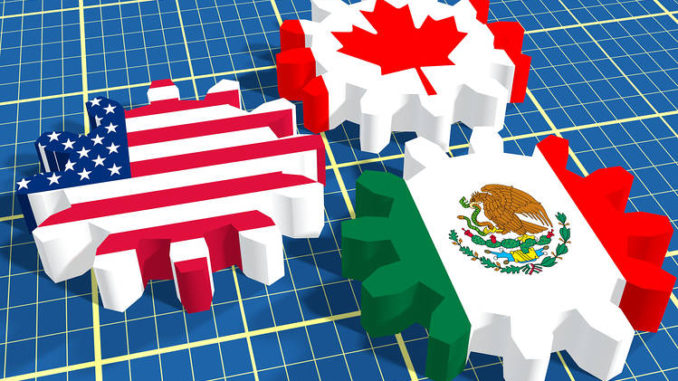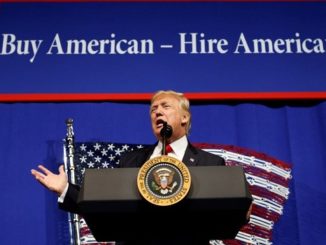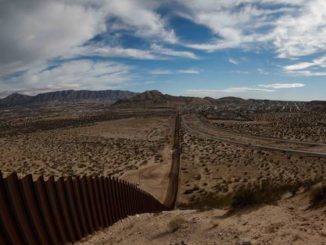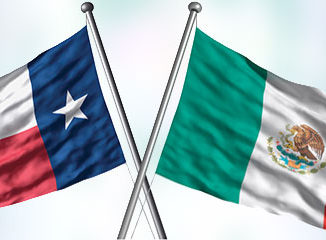
Thanks to free trade, the U.S. auto industry has become globally competitive again.
Donald Trump said during the first presidential debate that the North American Free Trade Agreement (Nafta) “is the worst trade deal maybe ever signed anywhere, but certainly ever signed in this country.” Such hyperbolic rhetoric—butchered syntax and all—was undoubtedly cheered by his base. But it is not supported by the facts. As a result it harms his case with Republican holdouts, whom Mr. Trump needs to win but who distrust his fast-and-loose economics.
The Republican is promising to force a renegotiation of Nafta. But he doesn’t seem to realize that Mexico gave up more tariff protection than the U.S. did when the agreement was signed in 1993. If Nafta is reopened, Mexico is unlikely to accept new limits on its access to the U.S. market. If a standoff leads to the end of Nafta, both countries would revert to their commitments under World Trade Organization rules and the existing “most-favored nation” tariff schedule. That would hurt, not help, the U.S. economy.
Mr. Trump is so reckless on trade that he makes Hillary Clinton and the Democrats, who wrote the book on Big Labor protectionism, seem sane. At least she acknowledged in the debate the importance of opening new markets abroad. “We are 5% of the world’s population. We have to trade with the other 95%,” she said.
–– ADVERTISEMENT ––
Unfortunately neither of the candidates is good on this critical issue but the Republicans advising Mr. Trump should know better. His attempt to slam Nafta by pointing to a 16% value-added tax that Mexican importers pay, for example, is misleading. This tax applies to transactions on both foreign and domestic-made goods, like the New York sales tax. It doesn’t discriminate against imports, and the importer recovers it by charging it to the customer. That’s Econ 101.
Nafta disrupted the economic status quo in the U.S.—as it did in Mexico. There have been winners and losers. But the U.S. dislocations are minor compared with those that occur from technological advances or when companies move production from high-tax, union-dominated U.S. states to low-tax, right-to-work states, and especially so when compared with the economic efficiencies gained.
Mr. Trump gave a quick nod to one genuine U.S. disadvantage during the debate when he talked about cutting U.S. corporate tax rates to spur investment at home. But his main message was that under Nafta Mexico is “stealing” U.S. jobs.
In fact, an interconnected North American economy has made U.S. manufacturing globally competitive. U.S. companies source components from Mexico and Canada and add value in innovation, design and marketing. The final outputs are among the most high-quality, low-price products in the world.
U.S. automotive competitiveness is highly dependent on global free trade. According to the Mexico City-based consulting firm De la Calle, Madrazo, Mancera, 37% of the U.S.’s imported auto components came from Mexico and Canada in 2015. This sourcing from abroad is important to good-paying U.S. auto-assembly jobs. But parts also flow the other way. U.S. parts manufacturers sent 61% of their exports to Mexico and Canada in 2015.
This synergy has made the U.S. auto industry attractive for investment. In the aftermath of the 2008 financial crisis investment in the auto sector contracted. But from 2010-14 almost $70 billion was invested in the North American automotive industry. Mr. Trump claims that investment is going to Mexico but two-thirds of it went into the U.S., according to a January 2015 report by the Michigan-based Center for Automotive Research.
This investment dynamism helped generate 264,800 new U.S. jobs in motor-vehicle production and parts between January 2010 and June 2016, according to the Bureau of Labor Statistics. That’s a 40% increase in employment despite the increasing trend toward robotics in the industry. Shut down Nafta and these workers and future job seekers will pay.
U.S. agriculture would also suffer. U.S. farm products now enter Mexico practically tariff-free and in 2013 (the latest year that data is available) it was the third-largest foreign market for U.S. farm output after China and Canada.
Let’s suppose that Mexico won’t give up ground in a new round of negotiations and Mr. Trump is successful in leading the repeal of Nafta. That would mean a reversion back to the WTO-agreed duties that each country charges nations without trade agreements. In 2013 Mexico’s weighted average tariff on agricultural products was 38.4%, which would be quite a climb over the zero tariff-rate that U.S. exporters now face. U.S. manufacturers that ship to Mexico would be hit with a weighted average tariff on industrial goods of 7.7%.
Keep in mind that Mexico has many bilateral trade agreements. Competitors from those countries would have large duty-free advantages over American farmers and manufacturers.
Mr. Trump’s outlandishness is supposed to be one of his strengths. But when it comes to trade he is not politically incorrect. He is factually incorrect.
Write to O’[email protected].



